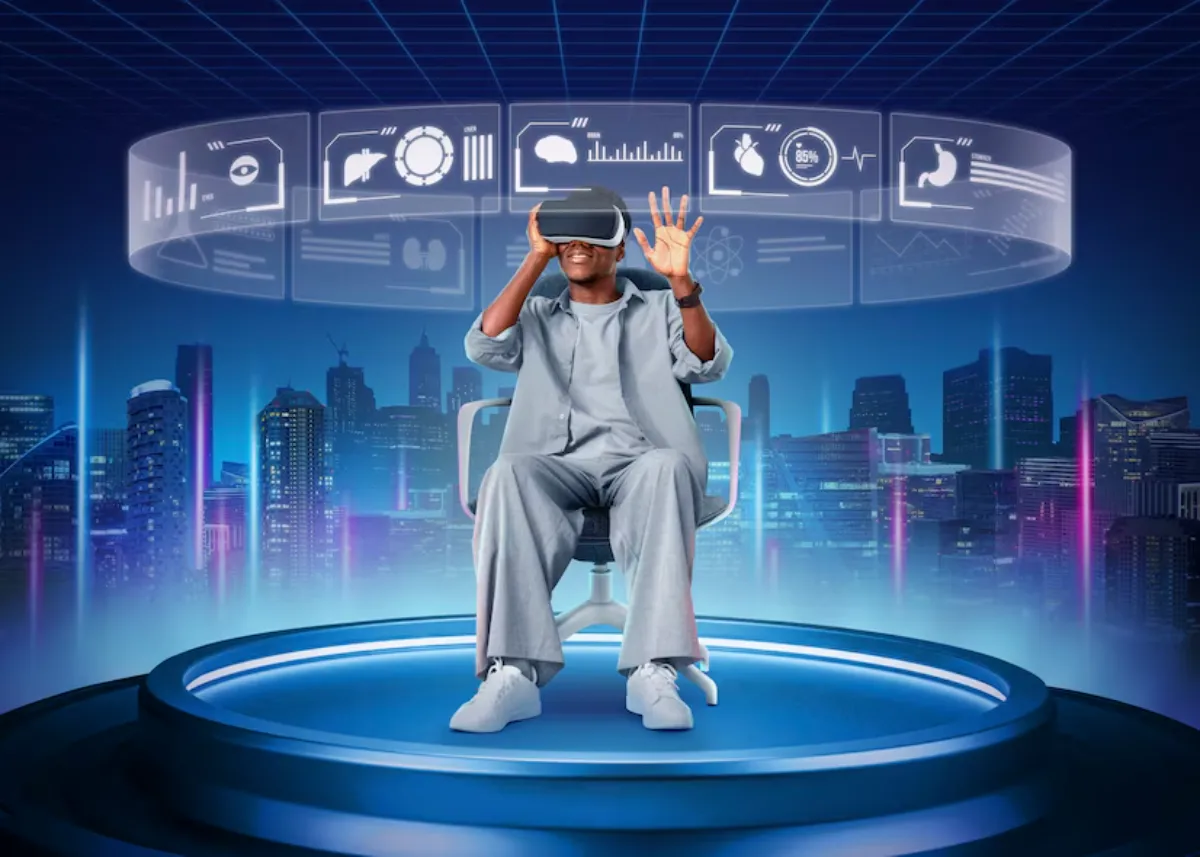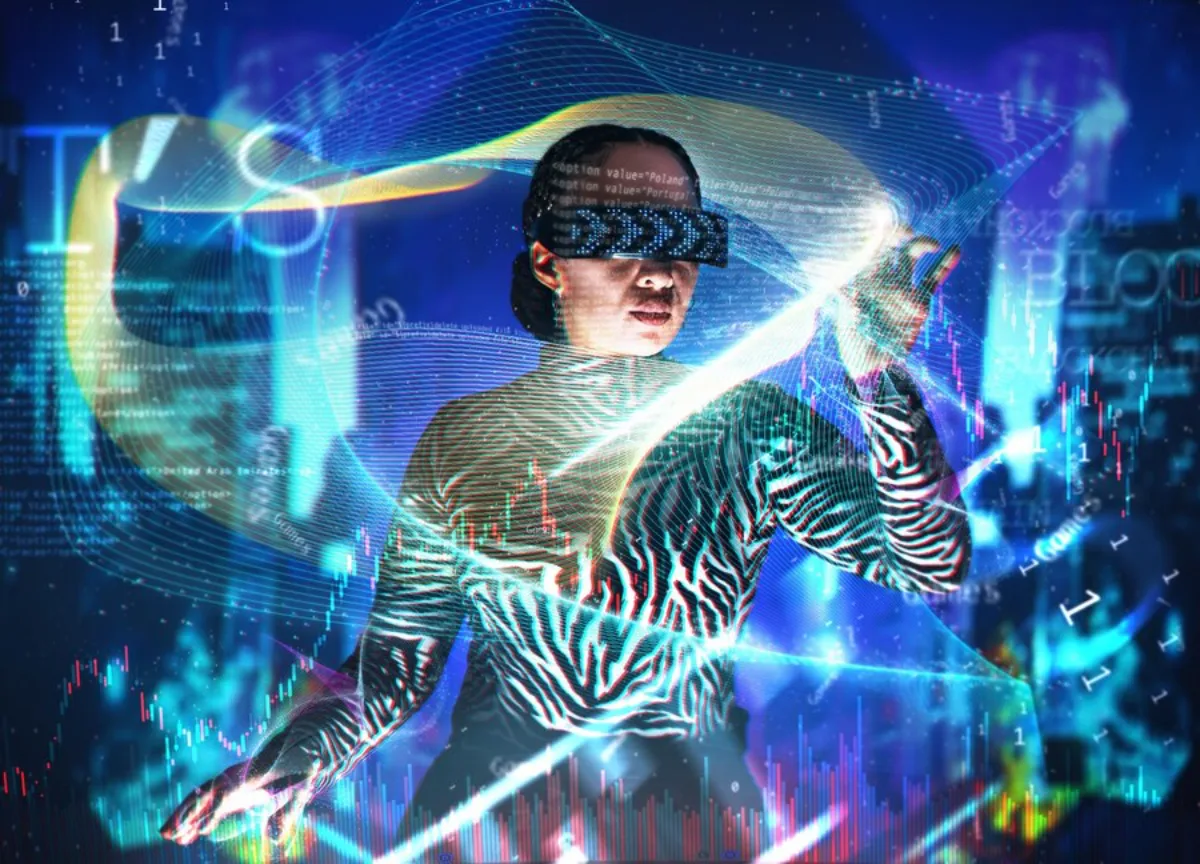
Is The Metaverse Really the Future of the Internet?
The digital world keeps changing. One big topic of debate is the metaverse future. The metaverse is an immersive virtual reality world. It connects digital spaces for people to interact, work, socialize, and have fun. The metaverse, with Web3 technology, can change how we use the internet.
However, despite the hype surrounding it, many questions remain. Will the metaverse become the main way we interact online? Or is it just another tech trend? This article looks at how the metaverse has changed over time. It looks at how Web3 technology could impact various industries. It also considers its importance and whether it’s truly the future of the internet.
Understanding the Metaverse
What is the Metaverse?
The metaverse is a digital space. It combines virtual reality, augmented reality, blockchain, and artificial intelligence. Together, these elements create immersive experiences. Users can interact in real-time with digital avatars. They can buy virtual assets and take part in activities like those in the real world.
The metaverse is not a single entity but a network of platforms, including:
- Decentraland – A blockchain-based metaverse where users can buy, sell, and develop virtual land.
- Meta’s Horizon Worlds – Facebook’s (Meta) social VR experience.
- The Sandbox – A decentralised metaverse focusing on gaming and virtual real estate.
- Roblox – A user-generated gaming platform with metaverse-like elements.
The Role of Web3 Technology in the Metaverse
Web3 technology is the next step for the internet. It emphasizes decentralization, blockchain ownership, and increased user control. It provides the foundation for a secure and user-centric metaverse future by integrating:
- Blockchain – Enables true ownership of digital assets, such as NFTs and virtual land.
- Smart Contracts – Automates transactions within the metaverse, ensuring transparency and security.
- Cryptocurrencies – Facilitate in-world economies, allowing users to trade and earn in digital environments.
- Decentralised Autonomous Organisations (DAOs) – Allow communities to govern virtual worlds collectively.

How the Metaverse is Reshaping Industries
Gaming and Entertainment
The gaming industry is at the forefront of metaverse adoption. Platforms like Fortnite, Roblox, and The Sandbox let players enter virtual worlds. Here, they can socialise, trade assets, and even attend virtual concerts. As VR and AR tech get better, gaming in the metaverse will be more fun and realistic.
Business and Remote Work
The pandemic sped up remote work. Now, companies are looking into metaverse solutions to improve virtual collaboration. Businesses are using Web3 technology to build decentralised workspaces. In these spaces, employees can interact in 3D environments. Tech giants like Microsoft and Meta are creating metaverse platforms for businesses. Microsoft Mesh and Horizon Workrooms help with virtual meetings and team collaboration.
Real Estate and Digital Ownership
One of the most significant metaverse future trends is virtual real estate. Users and companies buy digital land on platforms like Decentraland and The Sandbox. Some properties sell for millions of dollars. This brings up questions about how we value digital assets and whether the metaverse economy can last over time.
Education and Training
Educational institutions are incorporating the metaverse into their learning models. Virtual classrooms offer exciting learning experiences. Students can visit historical sites, run science experiments, or join interactive discussions in a virtual reality setting.
Healthcare and Wellness
Medical professionals are using metaverse technology for training, patient consultations, and mental health therapy. Surgeons can practice procedures using virtual reality simulations. Also, VR therapy helps patients with anxiety, PTSD, and phobias.

Challenges and Limitations of the Metaverse
Despite its potential, the metaverse future faces several challenges:
Technological Barriers
- Hardware Limitations – High-quality VR headsets and computing power are expensive, limiting accessibility.
- Latency Issues – Lag and connection problems can hurt the user experience in virtual reality.
Privacy and Security Concerns
- Data Privacy Risks – The metaverse gathers a lot of personal data. This raises worries about surveillance and misuse.
- Cybersecurity Threats – The metaverse is growing, and cybercriminals, like hackers and scammers, are taking notice.
Lack of Regulation
- Legal Uncertainty – Digital ownership, intellectual property rights, and taxes in the metaverse are still unclear.
- Governance Challenges – Decentralised virtual spaces need clear rules. This helps stop abuse and ensures fair participation.
User Adoption and Public Perception
- Accessibility Issues – Not everyone is comfortable using VR technology, limiting mass adoption.
- Scepticism and Hype – Some critics say the metaverse is overhyped. They believe it has few real-world uses outside of gaming and entertainment.

Is the Metaverse the Future of the Internet?
The metaverse presents exciting possibilities, but its future remains uncertain. Big tech companies are spending a lot on its development. But the road to widespread use is complicated.
Factors Supporting the Metaverse Future
- Advancements in VR, AR, and AI – As technology improves, metaverse experiences will become more immersive and accessible.
- Rising Interest in Digital Ownership – Blockchain and NFTs show a move to decentralised online economies.
- More Virtual Interactions – Remote work, digital teamwork, and online fun match the metaverse’s goals.
Factors Limiting the Metaverse’s Growth
- Slow Adoption Rate – Many users still like traditional internet experiences more than immersive digital ones.
- Sustainability Concerns – Blockchain networks and data centres for the metaverse use a lot of energy, which harms the environment.
- Economic Viability – Many metaverse projects depend on speculative investment. This makes their long-term success uncertain.
The Metaverse Future: Hype or the Next Digital Revolution?
The metaverse is still developing. It has great potential, but its success relies on overcoming tech, rules, and adoption challenges. Web3 technology is changing fast. The metaverse could change how we work, socialise, and interact with digital spaces.
It’s still unclear if the metaverse will dominate the internet or stay a niche innovation. Right now, it’s a growing space where innovation, speculation, and real-world use come together. This mix is shaping the future of digital interaction.


